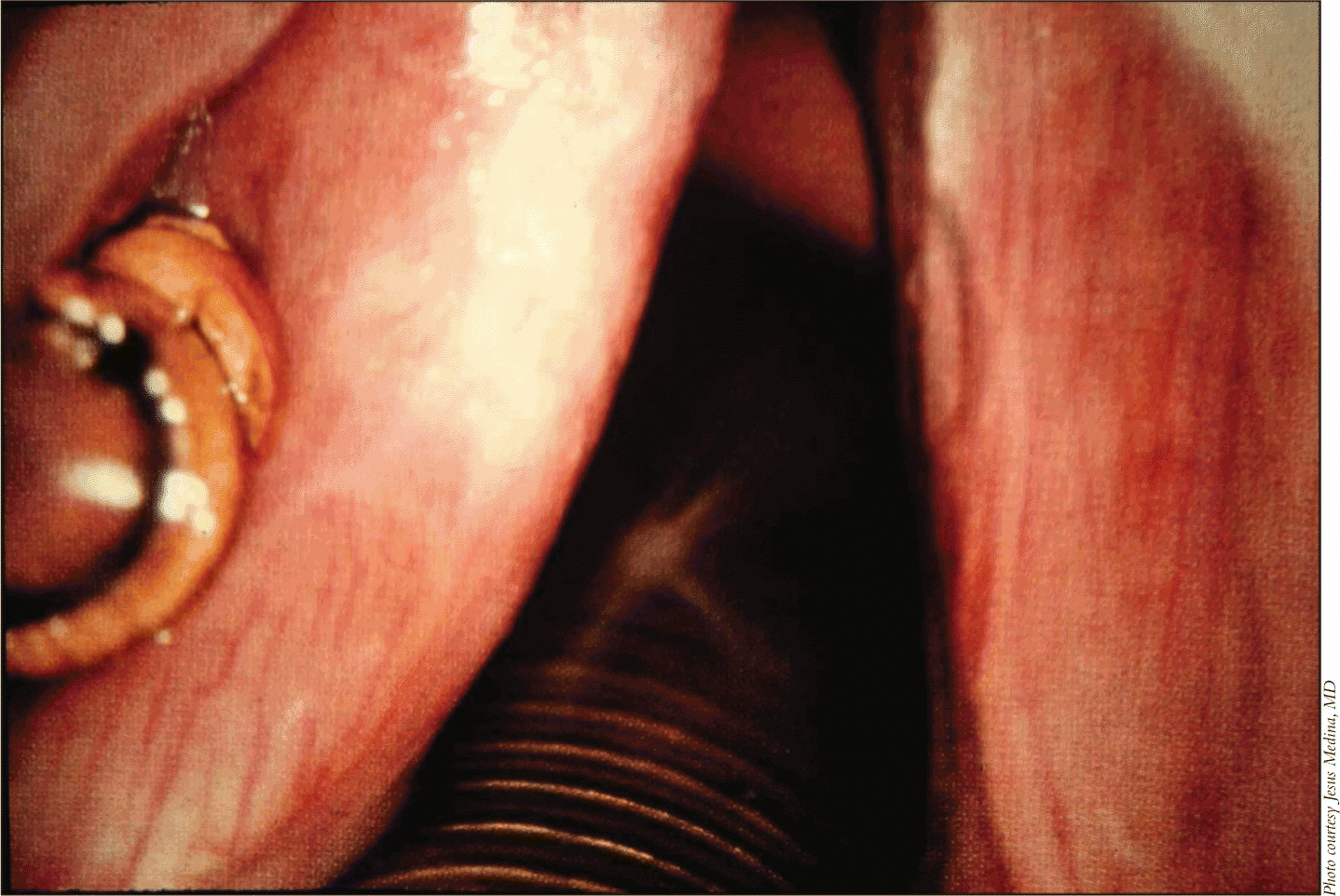But radiation therapy after the procedure would not be his choice, Dr. Mendenhall said. I think if you want to do a partial laryngectomy, great, but I would not plan on post-op radiation therapy personally, he said. I’m really worried about causing some major problems with function.
Explore This Issue
March 2009Dr. Hoffman said that a more extensive procedure might help preserve a patient’s voice, though that step should be taken only in some cases.
This type of resection usually leaves an incompetent valve and a significant dysphonia and supraglottic phonation, he said. We’ve done a number like this with free-flap reconstruction and restored true glottic phonation. It’s a long road to go but you do get the best voice as reliably as I’ve seen with the vertical partial laryngectomies reconstructed in this fashion. But he cautioned that not all patients are candidates for such a procedure and it may be best to leave them with poor voice quality rather than subject them to a large operation.
Third Case: Vocal Cord Dysplasia
In another case, involving a 58-year-old male patient, an image showed severe dysplasia of the left vocal cord, with squamous carcinoma in situ (Figure 3). On the right vocal fold, there was hyperkeratosis with mild dysplasia.

This appears to be localized, Dr. David Eisele said. I think we need to look at those lesions as basically the same entity, the same biological behavior.
Dr. Hoffman cautioned against a procedure that involved both folds at once. I would probably hold off on operating on both sides at the same time, he said. I’d want to leave the right side alone in hopes that you’d remove some irritation by removing the left, and so you’d still maintain the fluidity without inducing a scar by removing the right side of the lesion.
Dr. Medina asked Dr. Mendenhall, Is there ever a case where you treat with radiation therapy dysplasia and carcinoma in situ in the vocal fold?
Not very often, Dr. Mendenhall said. He would probably resort to radiation therapy only in the event of a recurrence. Each time you operate, the voice quality deteriorates, he said. Since 1964, I think we’ve probably treated less than 30.
Leave a Reply